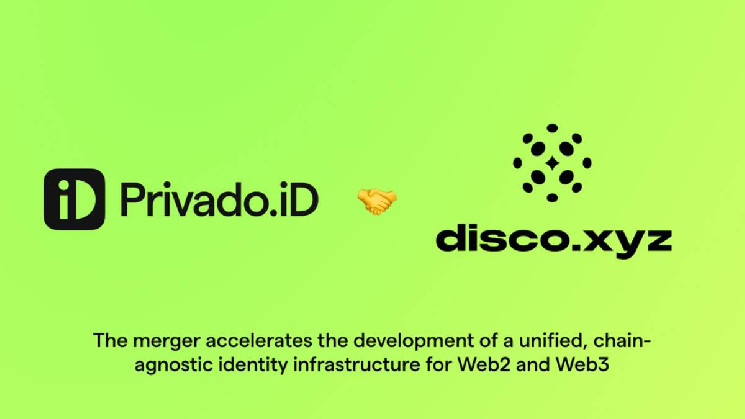Privado ID and Disco.xyz recently announced a strategic merger that is set to revolutionize the digital identity landscape. This merger brings together the expertise of both companies to create a unified digital identity infrastructure that spans across Web2 and Web3 ecosystems.
One of the key highlights of this merger is the integration of Disco.xyz’s advanced technology, known for its verifiable data management and reputation solutions, with Privado ID’s existing platform. This integration will enable Privado ID to expand its identity solutions to multiple blockchains, including Optimism, Arbitrum, and Base, providing users with a seamless and secure experience across various digital environments.
The new entity formed as a result of this merger will leverage technologies such as zero-knowledge proofs to ensure the integrity and security of identity data. This approach will overcome the limitations of traditional cross-chain bridging systems and closed reputation providers, offering users more comprehensive control over their digital credentials.
Evin McMullen, the founder of Disco.xyz and now the co-founder and chief strategy officer of Privado ID, brings over a decade of industry experience in developing on-chain technologies. Her expertise will play a crucial role in accelerating the adoption of decentralized identity and taking the vision of an integrated digital identity to new heights.
The successful pilot concepts implemented by the merged entity in major multinational banks and financial companies demonstrate the value and potential of their unified identity solution. Additionally, collaborations with companies like Telefónica Tech further underline Privado ID’s commitment to promoting privacy-focused digital identities in Europe.
Overall, this merger between Privado ID and Disco.xyz sets a new standard for digital identity solutions, emphasizing neutrality, scalability, and privacy in identity management. With a focus on innovation and advanced technologies, the unified entity is poised to lead the way in shaping the future of digital identity in the interconnected world. There is a growing trend in the health and wellness industry towards a more holistic approach to healthcare. This approach focuses on treating the whole person, including their physical, mental, emotional, and spiritual well-being. One of the key components of this holistic approach is the use of alternative and complementary therapies to supplement traditional medical treatments.
Alternative therapies, also known as complementary therapies, are non-conventional treatments that are used in conjunction with traditional medicine to help promote healing and overall well-being. These therapies can include things like acupuncture, chiropractic care, herbal medicine, massage therapy, and mindfulness practices.
One of the main benefits of using alternative therapies is that they can help to address the root cause of health issues, rather than just treating the symptoms. For example, acupuncture, which involves inserting thin needles into specific points on the body, is believed to help restore the body’s natural balance and improve overall health. Chiropractic care focuses on aligning the spine to improve the function of the nervous system and promote healing throughout the body.
Many people are turning to alternative therapies as a way to manage chronic pain, reduce stress and anxiety, improve sleep, and enhance overall well-being. These therapies can be especially beneficial for those who have not found relief from traditional medical treatments or who prefer a more natural and holistic approach to healthcare.
In addition to their physical benefits, alternative therapies can also have a positive impact on mental and emotional health. Practices like mindfulness meditation and yoga can help to reduce stress, improve mood, and promote a sense of peace and well-being. These therapies can be particularly helpful for those dealing with anxiety, depression, and other mental health issues.
It’s important to note that alternative therapies should not be used as a replacement for traditional medical treatments, but rather as a complement to them. It’s always a good idea to consult with a healthcare provider before starting any new therapy to ensure that it is safe and appropriate for your individual needs.
Overall, the use of alternative therapies in conjunction with traditional medical treatments can help to promote healing and well-being on a holistic level. By addressing the physical, mental, emotional, and spiritual aspects of health, individuals can experience greater balance, vitality, and overall wellness.

